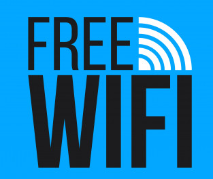Using a VPN to assist in keeping your data private on shared wifi connections

Who doesn’t love free Wi-Fi? Imagine you’re at your favorite hangout place and are surfing the internet through the free Wi-Fi available. As you go along reading the news, checking your emails, and taking a quick look at your bank balance. However, open hotspot can get you into a lot of trouble. You can lose your personal information and give access to your bank account to anyone on the same network! Using public systems is like having a conversation in public - anyone can eavesdrop. If you don’t take precautions, anyone on the web can use a few tools to get access and look at anything you do.
Apart from this grave threat, there are other potential problems - one of them is called a honeypot. Anyone who wishes to monitor data can create a “Public Wi-Fi” to tempt you into logging in. Once you’re on their network, hackers can access all your private information. Since anyone can create these honeypots without any special equipment, you may be at risk.
Incidentally, public Wi-Fi also puts you at risk of potential hacks. A hacker monitoring your system can take over a session like a social media site, and use browser cookies to log in to your personal account. Since they have your personal information through cookies, you will no longer be able to establish that the account is rightfully yours. Although public Wi-Fi is less secure, there are ways in which you can keep your information safe while enjoying access to free internet services. Read on to find out how:
Access the Power of VPN
As far as security is concerned, a VPN is your best bet! Virtual Private Network (VPN) offers an additional layer of protection against online threats. Whether you’re online through a public network or want to surf without prying eyes, or are worried about privacy, install a VPN. It establishes an encrypted connection between a private server and device, ensuring that your connection is secure.
While a VPN offers you a way to hide your online activity, you must beware of free VPN servers. These servers can see your online activity and can let others access your information. A good rule to follow is to use services that aren’t free, so you know that they’re not monetizing in illegit ways. For example, various VPNSecure reviews suggests that a VPN service should be easy to use while offering 24/7 chat support. In addition, you can choose OpenVPN with enhanced security and comes with a zero-log policy. It is not just reliable but also offers features for beginners as well as advanced users.
Workings of a VPN
If you access the internet using a VPN, people trying to steal your data will only see encrypted data. When connected, traffic sent from your device goes through an encrypted tunnel to the end-point of the provider. This ensures that no matter which site you access - your information is secure. Some sites only encrypt your login data but not your entire session - these sites should not be your go-to for VPN. Look for services that ensure your full session is protected.
One great thing about a VPN is that it is available for both computers and mobile devices. Through our VPNSecure review, we concluded that installing a VPN is pretty straightforward. After you download the service, you will be taken through step-by-step instructions irrespective of the device. These services come in different plans, so choose the one that suits you best. If you’re someone who moves around a lot and accesses public Wi-Fi, it’s imminent that you invest in a good VPN.
Setting up VPN on Windows
Setting up a VPN on Windows is very simple. Click on the Windows button, followed by Settings, Network & Internet, and select VPN. Once you’re on the page, enter the details of your server name, VPN type, and add a password for security. When you decide to log in, follow the process, and connect.
Setting up VPN on Android
Similarly, if you want to access public Wi-Fi through your mobile setup, a VPN on your Android device. Go to Settings, Network & Internet, Advanced, and then select VPN. Create your VPN profile, add details like type, server address, username, and password - and voila, your data is secure!
Conclusion
When you choose the right VPN, you can rest knowing that your information is safe as well as secure from outside threats. A reliable VPN connects you to the internet and never shares your data. A bad VPN, on the other hand, may share your activity with advertisers and other prying eyes. You mustn’t take a chance when it comes to your privacy. When you sign up for a service, ensure that you download the company’s app, so you’re protected even when outside.
Author Bio: Aaron Walker, works as Lead Content Designer at Outreach Monks, assisting the team curate and design the best infographics and video content. His expertise with the tools and technology is what inspires him to share what he learned through his experience.